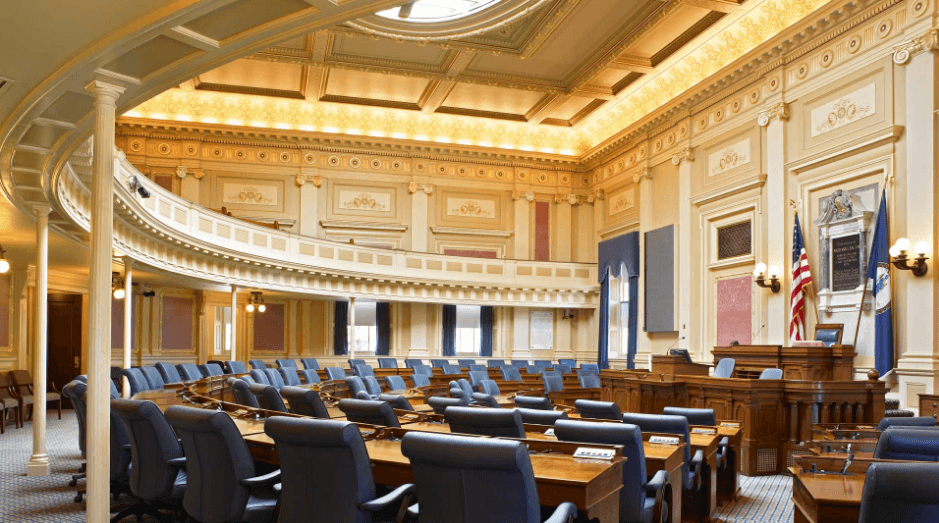Virginia House of Delegates passes bill to protect beliefs of religious entities
3 min read
Tom Crane Photography
By LIAM MISSIOS
On Feb. 20, the Virginia House of Delegates passed HB 2025, also known as “Religious freedom; solemnization of marriage,” in a 54-38 vote which largely adhered to party lines. An earlier form of the bill was introduced in the House of Delegates in January and was passed by the Senate in its current form on Feb. 16.
It now awaits approval by Governor Terry McAuliffe. The bill protects religious entities and their affiliates from penalty if they refuse to perform any marriage, and it is understood to target religious organizations which deny the performance of marriages to same-sex couples.
Governor McAuliffe has promised to veto the bill, stating earlier this year that he would “veto any legislation that discriminates against LGBT Virginians.” McAuliffe and Virginia Republicans have a history of disagreement regarding policies that concern the rights of members of the LGBTQ community. In 2014, McAuliffe signed an executive order banning discrimination against state employees on the basis of sexual orientation or gender identity, a measure that former Republican governor Bob McDonnell deemed unnecessary because he claimed that there was no evidence of discrimination in the state workforce.
In 2016, the predominantly Republican House of Delegates passed the Government Nondiscrimination Act, which permitted businesses and government entities to discriminate against married same-sex couples and transgender individuals. The bill was not passed in the Senate. In response to this, McAuliffe signed an executive order in January banning state contracts with firms that discriminate on the basis of sexual orientation or gender identity. House Republicans reacted by introducing HB 2025.
Referring to the executive order, Delegate Nicholas Freitas, a Republican from Culpeper who sponsored the bill, said, “when the government is engaging in a form of discrimination against a religious institution, it may require us to pass certain bills in order to protect those religious institutions from discrimination by the government…” However, the executive order does not address the performance of marriages by religious institutions.
Although the bill will not be met with approval by the governor, a Republican win in the upcoming gubernatorial election could lead to the passage of similar bills. Comparable laws in other states have been met with crippling opposition.
In 2016, the Mississippi legislature passed the Protecting Freedom of Conscience from Government Discrimination Act, which also allowed businesses and other organizations to freely discriminate against members of the LGBTQ community. A federal court later ruled it unconstitutional.
In North Carolina, HB2, which required transgender people to use bathrooms that corresponded to the gender specified on their birth certificates, was signed into law in 2016. Opposition led to hundreds of millions of dollars in lost business. Similar opposition can be expected if anti-LGBTQ legislation were passed in Virginia.
Although HB 2025 may not have a tangible impact on Virginians, its passage in the General Assembly is indicative of fierce opposition among some politicians and their constituents facing changing legal and cultural norms regarding the LGBTQ community. Though they may be fighting a losing battle, the subject will continue to play an important role in state and national politics in the coming years.



It’s concerning that McAuliffe wants to veto this bill. Do people genuinely want to force churches to perform marriages that they do not want to?
Separation of church and state goes both ways.